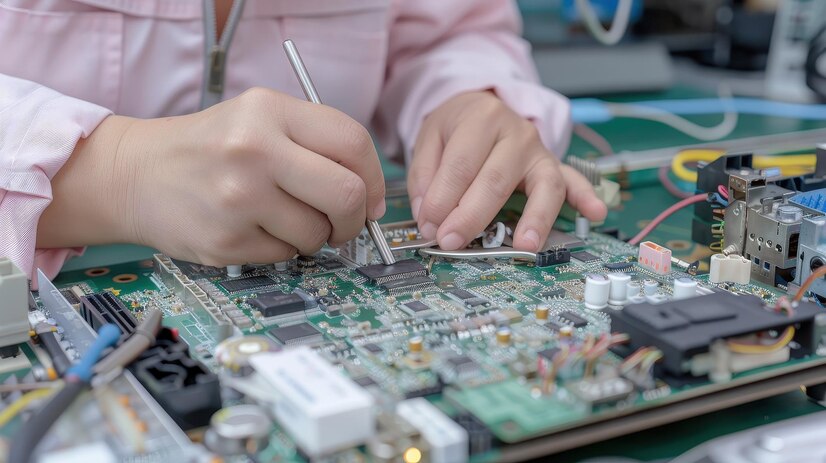In today’s fast-paced technological world, businesses and industries increasingly rely on specialized, high-performing electronics to meet specific needs. Off-the-shelf products often fail to provide the precision and customization required for innovative applications. This has led to a significant rise in the demand for custom electronics product designs, where solutions are crafted to fit particular requirements. From optimized performance and cost efficiency to better scalability and integration, custom designs offer numerous benefits across sectors such as healthcare, automotive, consumer electronics, and industrial automation.
In this article, we’ll explore the key benefits of custom electronics product designs, with a focus on how they revolutionize industries by offering tailored solutions.
Optimized Performance for Specific Applications
Custom electronics product designs allow manufacturers to focus on specific performance criteria unique to their application. Instead of relying on generalized components, custom designs ensure that each part is optimized for the intended use, whether it’s increased processing power, reduced power consumption, or enhanced signal integrity.
For instance, industries like healthcare, where precision and reliability are crucial, benefit immensely from custom electronics. Medical devices often require specialized components to perform life-saving functions, and custom electronic circuit designing allows for exact specifications that off-the-shelf solutions can’t meet. The result is improved performance and efficiency in devices such as pacemakers, monitoring equipment, and diagnostic tools.
Space and Cost Efficiency
One of the significant advantages of custom electronics is the ability to optimize the physical space within a product. Designers can strategically place components to maximize the available space, leading to more compact and efficient designs. This is particularly beneficial in industries where space is limited, such as aerospace, where smaller and lighter electronics are essential to reduce weight and conserve energy.
Moreover, custom designs eliminate unnecessary features and components, reducing overall costs. By focusing only on the essential elements, manufacturers can minimize waste, streamline production, and lower material costs. The cost savings become even more pronounced during mass production, where the streamlined design translates into reduced manufacturing expenses.
Enhanced Durability and Reliability
Many industries, such as automotive and aerospace, require electronics that can withstand harsh environments, including extreme temperatures, high humidity, or exposure to dust and water. Custom electronics designs allow engineers to select specific materials and components suited to these challenging conditions, enhancing durability and reliability.
For example, custom circuit boards can be designed to function in extreme temperature ranges or resist corrosion, ensuring long-lasting performance. This reduces the likelihood of failures, extends the product’s lifecycle, and minimizes maintenance costs. In critical applications like aerospace or defense, where failure is not an option, the reliability offered by custom electronics is invaluable.
Product Differentiation and Competitive Advantage
In competitive markets, product differentiation is key to standing out. Customized electronics designs give companies the opportunity to offer unique products with specialized features tailored to meet consumer demands. Whether it’s a new user interface, enhanced functionality, or improved ergonomics, custom designs can elevate a product’s appeal and set it apart from competitors.
This is especially relevant in consumer electronics, where innovation is rapid, and companies strive to launch the next groundbreaking product. Custom designs enable brands to integrate novel features, meet specific customer needs, and maintain a competitive edge.
Seamless Integration with Other Systems
Modern products often need to integrate seamlessly with other electronic systems or components. Custom electronics designs ensure that products can communicate effectively with other devices, allowing for better interoperability. This is particularly critical in fields like smart home technology, the Internet of Things (IoT), and automotive applications, where devices must work together in a synchronized ecosystem.
For instance, in automotive systems, custom electronic circuit designing can ensure that communication between sensors, control units, and display systems is seamless. This improves vehicle performance, safety, and user experience. As smart technology continues to evolve, the demand for custom-designed electronics that can integrate with a wide range of systems will only grow.
Scalability for Future Growth
One of the biggest advantages of custom electronics design is scalability. Whether a company is developing a prototype or planning for mass production, custom designs can easily scale with the business's needs. Prototyping allows manufacturers to test and refine designs before committing to large-scale production, ensuring the final product meets all performance and quality standards.
Custom designs also provide the flexibility to upgrade components or add new features as technology advances or customer needs change. This ensures that products remain relevant and can be easily adapted to future innovations without needing a complete redesign.
Improved Security and Privacy
With the increasing importance of cybersecurity, particularly in IoT and connected devices, custom electronics designs offer enhanced security features tailored to specific applications. Off-the-shelf products often come with generic security solutions, which may not be sufficient for protecting sensitive data or preventing hacking attempts.
By designing custom electronics with built-in security protocols, such as encryption and secure boot processes, manufacturers can provide a higher level of protection. This is especially important in industries like healthcare, where safeguarding patient data is a top priority, or in financial services, where secure transactions are critical.
Faster Time-to-Market with Specialized Designs
Contrary to the belief that custom electronics slow down production, they can actually speed up the time-to-market when working with experienced design teams. Custom designs streamline the development process by focusing on specific requirements, eliminating the need for post-production modifications often required with generic products.
With rapid prototyping tools and simulation technologies, custom electronics designs can be tested and refined quickly, ensuring the product is ready for market sooner. This is particularly advantageous in industries where being the first to launch a new innovation can mean the difference between success and failure.
Compliance with Industry Regulations
Many industries, such as healthcare, automotive, and aerospace, are subject to strict regulatory requirements that standard products may not meet. Custom electronics designs allow manufacturers to ensure compliance with industry-specific regulations from the ground up. This is essential to avoid costly redesigns or delays in the approval process.
For example, in the healthcare industry, medical devices must comply with stringent safety and performance standards. Custom designs ensure that every component meets these regulatory requirements, ensuring a smoother path to market.
Sustainability and Eco-Friendliness
Sustainability is becoming increasingly important for businesses and consumers alike. Custom electronics designs allow manufacturers to create eco-friendly products by selecting sustainable materials and optimizing energy consumption. This not only reduces the product’s environmental impact but also aligns with the growing consumer demand for green technology.
Moreover, by minimizing waste and reducing the need for frequent repairs or replacements, custom designs contribute to a more sustainable product lifecycle, benefiting both the environment and the manufacturer’s bottom line.
Conclusion
Custom electronics product designs offer a wide array of benefits that are transforming industries and paving the way for more innovative, efficient, and secure solutions. From enhanced performance and durability to scalability and seamless integration, custom designs provide tailored solutions that meet the unique needs of each application. As technology continues to advance, the demand for custom electronics, especially in areas like electronic circuit designing, will only increase, allowing businesses to stay ahead in an increasingly competitive and dynamic market.
With the flexibility to adapt to future changes, custom electronics product designs are not only a smart investment for businesses today but also a key driver of technological progress for years to come.






Comments